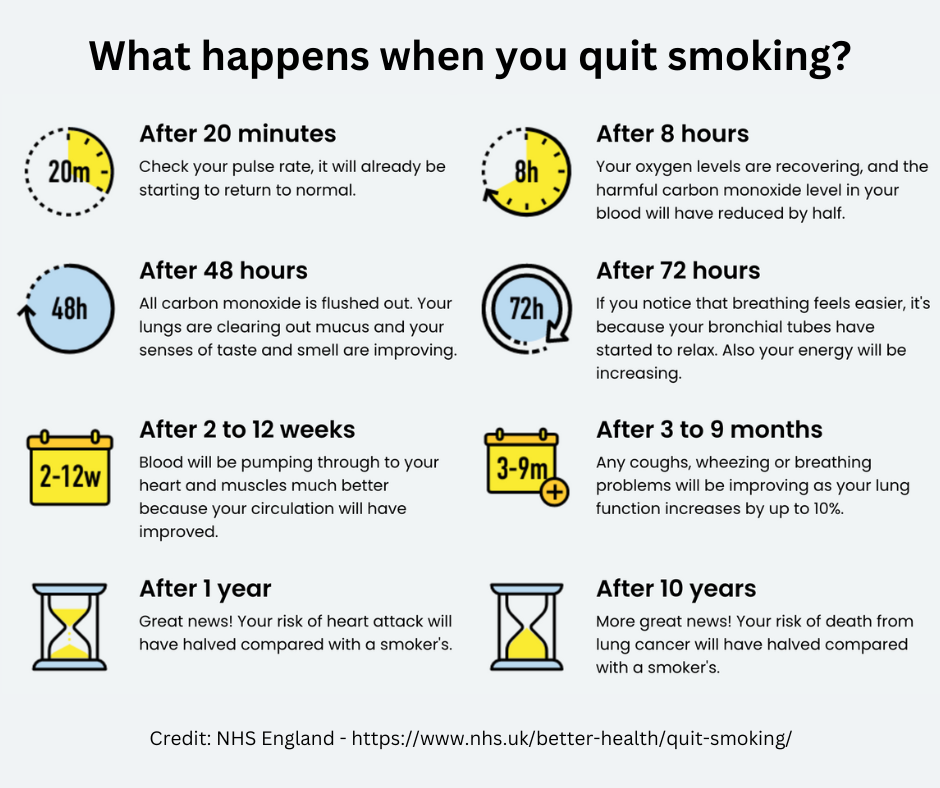10 ways to stop smoking
May 30, 2023
Are you ready kick your smoking habit?
Quitting smoking really isn't easy! It takes strength, determination and a clear vision for what your life will be like when you've kicked the habit for good!
The very first step is deciding that you are going to stop smoking.
Once you find the right strategy that works for you, and your lifestyle, you can leave smoking behind and look forward to a healthier future.
What happens when you stop smoking?
According to the
NHS
, you can expect have noticeable short-term and long-terms changes to your body and general health:
Here are 10 tips and tricks you may find helpful to stop smoking:
1. List your reasons
Make a list of all of your reasons to quit.
If you need any extra reason, you can look forward to many health benefits, including: improved physical and mental health, reduced risk of developing chronic disease and many types of cancer.
2. Make it official
Plan a specific date to quit smoking and make a plan.
This can help you mentally prepare to have your last cigarette, and you are more likely to keep your resolve.
Remember: There is no such thing as '1 cigarette', so be sure to remove all temptation before stopping smoking.
3. Get support
Telling your friends and family may encourage them to support you in your decision and keep you on track.
You can also try joining a support group in-person or online, for relatability and advice during your journey.
4. Use online resources
There are many mobile apps and online resources available that can help you quit smoking.
There are some great resources on the NHS website, and you can download the free NHS Quit Smoking App.
5. Speak to a healthcare professional
Your GP or a healthcare professional can help you create a plan, offer personalised advice, help you manage symptoms of withdrawal and available treatment options.
Seeking guidance from a therapist may be helpful to explore other issues that may be contributing to your smoking habit and work on your triggers.
6. Use stop smoking aids
Smoking aids can help to reduce withdrawal symptoms and cravings.
There are many options on the market, including patches, gum, inhalers, vapes and nasal sprays.
7. Avoid triggers
Identify situations and people that trigger the urge to smoke and try to avoid them as much as possible.
8. Find healthy alternatives
Find healthy alternatives to smoking, such as deep breathing, fidget toys, or chewing gum.
Exercising, or simply keeping busy can help distract you from cravings and further improve your health.
9. Reward your progress
Reward yourself for reaching milestones, such as a day, a week, or a month without smoking.
10. Have a plan for relapse
It’s hard to quit smoking and it’s normal to have relapses.
If you find yourself smoking, try not to be too hard on yourself. Get back on track the next day and remind yourself of all the reasons you want to quit smoking.
You can do this!
We wish you the best of luck on your journey to a healthier future!
Here are some helpful resources to help you succeed:
This article is intended to inspire and encourage any individual looking to start a smoking cessation journey. For a personalised plan, or medical advice, please speak to your GP or healthcare professional.










